Reduction in import duties for steel products cheers steel industry and importers
The Indian Ministry of Finance announced in February that it would reduce customs duties on imports of certain steel products from 12.5 percent to 7.5 percent, and steel scrap will be completely exempt from customs duties on imports. For steel scrap, the tax reduction will be in effect until March 31, 2022; the Ministry of Finance did not specify a fixed date for the other categories. The products included in the duty reduction are semi-finished products, flat and rod steels made of pure metals, alloys and stainless steel. In addition, to support steel recycling companies, the customs duties on copper scrap will be reduced from 5 percent to 2.5 percent.
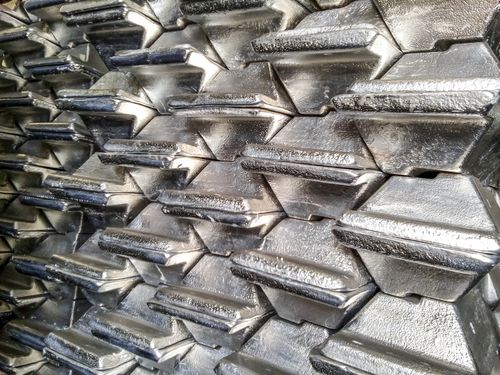
The Ministry of Finance cited the sharp rise in steel prices on the Indian market as the reason for the reduction in customs duties. In some cases, price increases of up to 50 percent were observed. To further ease the situation, previous regulations such as punitive and countervailing duties on some products and countries of origin such as China were also temporarily suspended until Sept. 30, 2021. The products affected for the suspension of punitive duties are rod steel from China, HSS steel from Brazil, China and Germany, and flat and coated steel from China, Vietnam and Korea. Countervailing duties have been temporarily suspended on rolled stainless steel products from China and flat stainless steel from Indonesia.
The Indian steel industry and importers were pleased with the news from the Finance Ministry. Chief Executive Officer of Usha International, a manufacturer of home appliances, Dinesh Chhabra said, “The temporary suspension of duties on steel and copper scrap until March 2022 will help us keep prices stable for end users and achieve good sales in the current year.” For importers of steel products, the reduction in tariffs will also have a positive impact. It should be noted, however, that steel products need BIS-ISI certification to be imported into India. BIS stands for the Bureau of Indian Standards and is India’s national certification body under the umbrella of the Indian Ministry of Consumer Affairs, Food & Public Distribution. Product certification under the Bureau of Indian Standards (BIS) has been in existence since July 2013 and is intended to be an assurance of quality, safety and reliability to third parties. ISI is the mark or seal on the respective product. The ISI mark was introduced by the BIS for industrial products in 1955. MPR International GmbH – India Certification will be pleased to assist you with BIS-ISI certification and is also available to answer any questions you may have.
Since 2012, the BIS has been gradually expanding the certification catalog and continuously adding additional goods. BIS certification mandatory for many electronic products for industrial and consumer uses. Factory inspections are also required for some products.
If you are interested in understanding what requirements are needed for your product to be imported into India, please do not hesitate to contact us by email or phone at +49-69-271 37 69 261. There is no cost or obligation for us to check for you. If a certification need is discovered we can provide a quotation to make sure that all your certification needs are covered.
If you have any questions you can also use our chat-window in the bottom right. (Please check your browser settings if you can’t see the window)
For more information about BIS certification, please refer to our free brochure “BIS Certification Made Easy“.
Fertilizer sales up 12 percent year-on-year due to favorable weather
According to the ICRA rating agency, fertilizer sales in India increased by 12 percent year-on-year. Further growth in sales volume is expected as the area of winter-sown crops this season stands at about 67.5 million hectares. This increase in cultivated area is based on a high rainfall monsoon season, sufficient water in reservoirs, and subsidies from the government. Fiscal 2021 will be critical for the fertilizer industry, ICRA estimates. Manufacturers could sell record volumes, earn good profits and reduce debt.
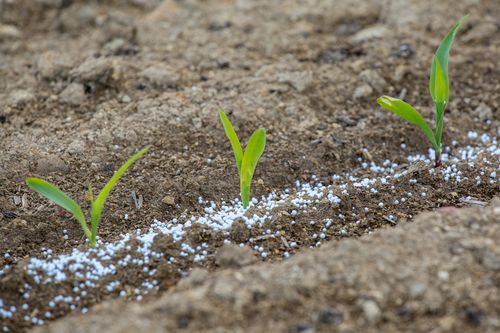
Ravish Mehta, chief analyst at ICRA Ratings, said due to the extraordinary increased acreage in the winter season as well as a good summer harvest, fertilizer sales volumes have reached record levels in fiscal 2021. Sales volumes of individual fertilizer or fertilizer components increased in the range of 9 to 29 percent. The substances most in demand were urea, ammonium phosphate, compound fertilizer, potassium chloride and supersphospate. Fertilizer retailers also saw strong growth in fiscal 2021, as farmers mostly stockpiled small quantities to reduce their expenses.
The Indian government plans to provide further subsidies of between $12 billion and $13 billion to the fertilizer industry in the upcoming fiscal year 2022. With good crop forecasts for the current season, prices are expected to remain stable as well as government tax revenues to increase, ICRA analysts said. The winter season of Indian agriculture includes wheat, rapeseed, mustard and chickpeas. Wheat accounts for the majority at 33.7 million hectares, or 49 percent, followed by chickpeas at 10.9 million hectares and oilseeds such as rapeseed and mustard at 7.3 million hectares. For oilseeds, a record area was cultivated for this season, most of it in the state of Rajasthan, which accounts for 35 to 40 percent of the total cultivated area. Fertilizers and related chemicals require BIS-ISI certification before being imported into India or placed on the market. MPR International GmbH – India Certification will be pleased to assist you with BIS-ISI certification and is also available to answer any questions you may have.
Since 2012, the BIS has been gradually expanding the certification catalog and continuously adding additional goods. BIS certification mandatory for many electronic products for industrial and consumer uses. Factory inspections are also required for some products.
If you are interested in understanding what requirements are needed for your product to be imported into India, please do not hesitate to contact us by email or phone at +49-69-271 37 69 261. There is no cost or obligation for us to check for you. If a certification need is discovered we can provide a quotation to make sure that all your certification needs are covered.
If you have any questions you can also use our chat-window in the bottom right. (Please check your browser settings if you can’t see the window)
For more information about BIS certification, please refer to our free brochure “BIS Certification Made Easy“.
Indian market for electric vehicles to become more attractive through new regulations
Ahead of upcoming deliberations on the Indian state government’s annual budget, the Society of Manufacturers of Electric Vehicles (SMEV) has urged Finance Minister Nirmala Sitharaman to revamp the FAME subsidy program. The association said to either revise the upcoming Phase 2 of FAME or reintroduce Phase 1 of FAME. The budget of the FAME 2 incentive program is the equivalent of about $1.37 billion, is for a three-year period and was introduced on April 1, 2019. Phase 2 is an extension of the FAME 1 India program, which came into effect on April 1, 2015 with a sum of $123 million. The acronym FAME stands for “Faster Adoption and Manufacturing of Hybrid and Electric Vehicles.”
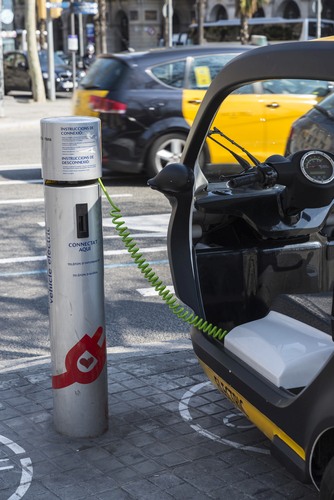
In addition, it hopes to see a reduction in VAT for electric vehicles. SMEV Chairman Sohinder Gill also wrote, “For a young and fragile industry like electric vehicles, which is also heavily dependent on government subsidies, there is a need for an effective strategy to support the market. The electric vehicle industry is still behind its target figures.”
The plan was to support 1 million electric two-wheelers, 500,000 three-wheelers, 55,000 passenger cars and light commercial vehicles, and 7,000 buses. The SMEV argued that FAME 2 needs to be more attractive for customers because conditions, especially for two-wheelers, need to be made affordable for the mass of the population despite subsidies. To support the Indian automotive industry, the deadline for subsidy applications to manufacture components for electric vehicles has been extended for the second time to April 1, 2021.
The relevant technical automotive standards, called Automotive Industry Standards or AIS for short, apply to Indian manufacturing locations. The process of AIS certification according to the Indian AIS (Automotive Industry Standard) can be challenging and complex. We will be pleased to support you in the AIS certification process and are also available to answer any questions you may have.
AIS stands for Automotive Industry Standards, the technical automotive standards for India, while TAC stands for Type Approval Certificate. This kind of automotive product certifiation is conducted by authorities like the International Center for Automotive Technology (iCAT).
Depending on the product category, there are different certification steps. We will be happy to advise you on certification in India and are always available to answer your questions.
Please do not hesitate to contact us for further details and consultation. You can contact us via e-mail, or call us (UK: +44 2071931135, Rest of Europe: +49 69 2713769261, US: +1 773 654-2673).
If you have any questions you can also use our chat-window in the bottom right. (Please check your browser settings if you can’t see the window)
You can also check out our free AIS-Brochure, which can be downloaded right here as a PDF file.
India implemented several measures to facilitate trade
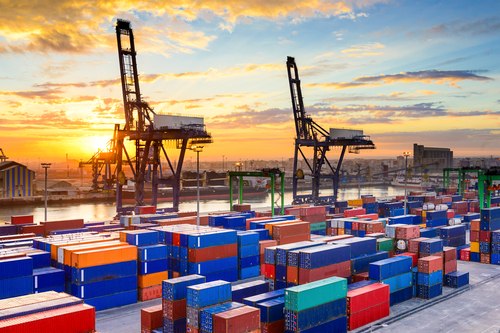
According to a recent WTO report, since 2015 India has implemented several measures to facilitate trade such as simplification of trading procedures and the customs clearance for imports and exports. Namely, India introduced digital systems to ease trading such as Indian Customs Electronic Gateway (ICEGATE); Single Window Interface for Facilitation of Trade (SWIFT); the Direct Port Delivery and the Direct Port Entry facilities; and the increased use of the Risk Management System (RMS). Currently, the Geneva-based WTO is reviewing India’s trade policy for the sixth time and as a result will publish a Trade Policy Review (TPR) paper. The TPR is of importance to monitor and peer-review each WTO member’s national trade policies, in this case India.
So far, the WTO is satisfied with India’s progress such as reduction in the number of documents required for trading as well as the automation of the customs clearance for import and export. However, the report also revealed that India’s trade policy remained largely unchanged since the previous review in 2015. To manage to market situation, India relies on trade policy instruments like tariffs, export taxes, defined minimum import prices as well as import and export restrictions and licensing. As a result of this policy, tariff rates and other policy instruments are subject to frequent changes which creates uncertainty for traders.
With respect to the rapidly expanding size of the Indian market foreign trading partners, both leading industrialized but also developing countries, are expecting a greater liberalization of India’s current trade policies, especially in the area of agriculture. Calls have been made to harmonize its standards regime with international standards as well as reducing anti-dumping duties and other trade-remedy measures. To this end, India plans to introduce mandatory product certifications for additional 150 products within 2020. The relevant authority undertaking the whole process will be the state-related Bureau of Indian Standards (BIS), the national body for industry standards. Product certification according to the Bureau of Indian Standards (BIS) was introduced in July 2013 and is intended to guarantee quality, safety and reliability to third parties.
While this measure could initially put pressure on importers, it is also an opportunity to increase sales and strengthen your company’s market presence in India. We would be pleased to assist you with BIS certification and are also available to answer any questions you may have. MPR International GmbH – India Certification offers you a complete package for BIS certification, where you will be optimally supported.
If you are interested in understanding what requirements are needed for your product to be imported into India, please do not hesitate to contact us by email or phone at +49-69-271 37 69 261. There is no cost or obligation for us to check for you. If a certification need is discovered we can provide a quotation to make sure that all your certification needs are covered.
If you have any questions you can also use our chat-window in the bottom right. (Please check your browser settings if you can’t see the window)
For more information about BIS certification, please refer to our free brochure “BIS Certification Made Easy“.
Mercedes-Benz expects considerable growth in India this year
German luxury vehicle manufacturer Mercedes-Benz expects considerable growth in India this year, underpinned by the launch of 15 new models and rising demand in the fourth quarter of 2020. However, the company will not be able to match its former 2018 peaks until 2022, a management official said. This slow recovery comes as a result of supply issues from automotive suppliers in Europe. Mercedes-Benz India CEO Martin Schwenk said in an interview that a return to normalcy is taking place with increasing momentum in the fourth quarter as well as a decline in Covid 19 cases. He also said he sees strong demand across the company’s product range.
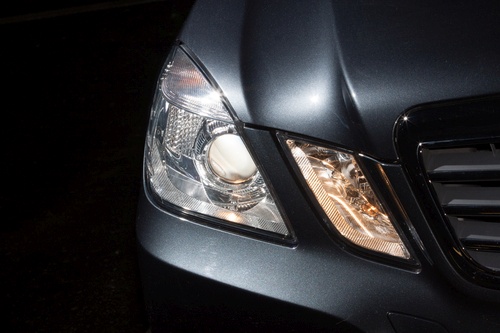
In India’s festive season during the fall months of 2020, Mercedes-Benz saw an uptick in sales, which was also supported by model debuts. Schwenk further said, “This trend will continue in 2021. We also have 15 new models in the pipeline for the Indian market. With continuation of stable demand, I see a good opportunity for the company to recover and sustain growth this year.” Last year, sales were down 43 percent to 7,893 vehicles, compared to 13,786 vehicles sold in 2019.
Asked about the current year, Schwenk said they are currently having problems starting production. They need experts and parts and machinery from Europe, but this is proving difficult due to restrictions on travel and logistics. Since demand has developed better than originally expected, there are delivery problems for the best-selling GLE and GLS. There are waiting lists and a waiting period of between one and three months for these models. Schwenk expects the situation to ease in the first quarter of 2021. Due to the positive development of the Indian economy and increasing confidence among consumers and especially companies, which make up a large part of the customers, Schwenk sees sustainable growth for Mercedes-Benz in India.
AIS stands for Automotive Industry Standards, the technical automotive standards for India, while TAC stands for Type Approval Certificate. This kind of automotive product certifiation is conducted by authorities like the International Center for Automotive Technology (iCAT).
Depending on the product category, there are different certification steps. We will be happy to advise you on certification in India and are always available to answer your questions.
Please do not hesitate to contact us for further details and consultation. You can contact us via e-mail, or call us (UK: +44 2071931135, Rest of Europe: +49 69 2713769261, US: +1 773 654-2673).
If you have any questions you can also use our chat-window in the bottom right. (Please check your browser settings if you can’t see the window)
You can also check out our free AIS-Brochure, which can be downloaded right here as a PDF file.
Luxury car manufacturers expect growth of 25 to 40 % this year
2021 could be a good year for the Indian automotive industry. According to a recent press report, luxury car manufacturers are expecting a v-shaped recovery in the market with increases in sales in the range of 25 to 40 percent this year. Automakers have around 70 new models in the pipeline, which are expected to hit the Indian market this year. The new launches include completely new models as well as facelifts and new variants of existing models.
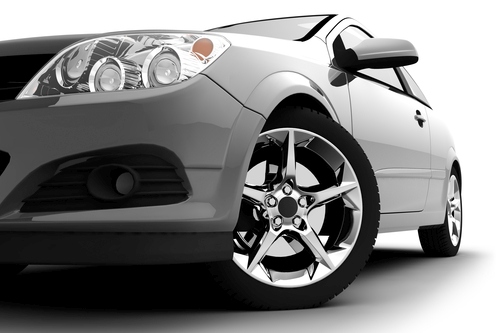
BMW expects to introduce 25 new models by the end of the year, while Mercedes-Benz plans 15 new vehicles. Jaguar Land Rover will present 10 new models, Audi and Volvo 7 and 5 new vehicle types respectively. Manufacturers of premium and super sports cars such as Rolls-Royce, Lamborghini, Ferrari and Porsche will account for the remaining premieres. Martin Schwenk, managing director of Mercedes-Benz India said the company expects growth of over 40 percent in the next two years. He cited positive market sentiment, rising GDP of the country and per capita, and new innovations in upcoming vehicle models that will help automakers improve sales figures as reasons.
Balbir Singh Dhillon, head of Audi India, said 2021 will be an exciting year for the company. The automaker plans to more than double its current sales figures. To achieve this, he said Audi India will focus on four core topics: Digitalization, Products, Customer Orientation and Sales. BMW India CEO Vikram Pawah shared that the company has recovered month on month in the third quarter of 2020. For 2021, BMW expects growth of 25 to 30 percent and the highest number of product launches ever, 25 new models.
Among the new launches for the Indian market are a number of electric vehicles, including the Tesla Model S, Audi e-tron, Jaguar I-Pace, Volvo XC40 Recharge and electric versions of the Porsche Taycan and Mini Cooper. Overall, experts see record sales figures for the Indian luxury car market this year. Between 28,000 and 33,000 sales are expected compared with around 20,000 last year.
The relevant technical automotive standards, known as Automotive Industry Standards or AIS for short, apply to India as a manufacturing location. In general, these are based on UNECE standards. AIS certification is required for complete vehicles or automotive components. The process of AIS certification according to the Indian AIS (Automotive Industry Standard) can be challenging and complex. MPR International GmbH – India Certification is pleased to support you in the AIS certification process and is also available to answer any questions you may have. AIS certifications are performed by various Indian authorities, like f.e. the International Centre for Automotive Technology (iCat).
We will be happy to advise you on certification in India and are always available to answer your questions.
Please do not hesitate to contact us for further details and consultation. You can contact us via e-mail, or call us (UK: +44 2071931135, Rest of Europe: +49 69 2713769261, US: +1 773 654-2673).
If you have any questions you can also use our chat-window in the bottom right. (Please check your browser settings if you can’t see the window)
You can also check out our free AIS-Brochure, which can be downloaded right here as a PDF file.
SAIL steel production grew by 9 percent from October to December 2020
State-owned Steel Authority of India Limited (SAIL) announced in early January 2021 that it was able to increase crude steel production by 9 percent to 4.37 million tons during the October-December 2020 period. A year earlier, the company produced around 4 million tons of steel during the identical period. SAIL CEO Soma Mondal said her company has been able to steadily increase production volumes over the past year. In the first quarter, there was a slight drop in sales due to the Covid 19 pandemic but they were able to offset this development with higher unit sales. “We have now reached the production level we had before the pandemic and even posted a slight increase in the last quarter,” Mondal said. She further said that domestic demand of steel will increase as the Indian economy is increasingly recovering and all industries are on the upswing.
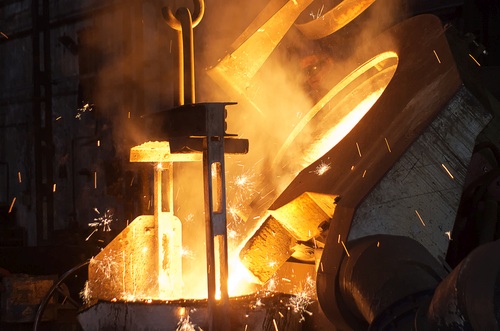
According to a press release, SAIL has been able to reduce its debt to $6.07 billion by December 2020 from the historic high of $7.16 billion in April. The company plans to reduce more debt later this year. The Steel Authority of India Limited (SAIL) operates under the eponymous Ministry of Steel and is India’s largest steel producer, producing 21 metric tons annually. Steel is an important commodity for India. To curb imports of substandard products, including from China, the Bureau of Indian Standards (BIS) has submitted a draft of 150 mandatory quality standards for crude steel and steel products to the Ministry of Commerce. The BIS plans to make the standards mandatory by March 2021.
Since 2012, the BIS has been gradually expanding the certification catalog and continuously adding additional goods. BIS certification mandatory for many electronic products for industrial and consumer uses. Factory inspections are also required for some products.
We would be pleased to support you with the BIS certification and are also at your disposal for any questions you may have. MPR International GmbH – India Certification offers you a complete package for BIS certification in which you are optimally supported.
If you are interested in understanding what requirements are needed for your product to be imported into India, please do not hesitate to contact us by email or phone at +49-69-271 37 69 261. There is no cost or obligation for us to check for you. If a certification need is discovered we can provide a quotation to make sure that all your certification needs are covered.
If you have any questions you can also use our chat-window in the bottom right. (Please check your browser settings if you can’t see the window)
For more information about BIS certification, please refer to our free brochure “BIS Certification Made Easy“.
Indian telecommunications industry set to develop further
Telecom executives are dissatisfied with the implementation of announced goals, according to a global survey by EY Research. About half, 46 percent, believe the lack of long-term roadmaps is preventing the adoption of automation operations and processes. Sixty-seven percent lamented the lack of expertise and experts to improve the use of artificial intelligence. Four out of five executives surveyed are reassessing the introduction of automated processes or revising existing plans, according to the survey.
India is seeing similar approaches. The telecommunications industry there is undergoing a transformation from a real world to a virtual one. Whereby virtual world here means the Internet, which is brought to the end customers by the numerous providers. Due to our dependence on the internet, the amount of data transmitted wirelessly in India has increased from 6,900 petabytes in December 2019 to 8,280 petabytes in April 2020. From this, it can be inferred that the telecom segment of India is one of the few growth sectors of the economy. For instance, the provider Airtel recorded a growth of 0.9 percent in the last quarter.
Currently, numerous Internet providers and service providers are preparing for the increasing demands and are expanding their infrastructure accordingly. Telecom giant Airtel gained 226,000 new subscribers to its digital television service in the previous quarter and added an additional 10 Tbps to its network capacity. In addition, Airtel is the first provider of vRAN (Virtualized Radio Access Network) based on its 4G network. There was also progress in telecom security and new regulations came into effect. Since October 2020, the encryption protocols of all telecom products must be certified by India’s TEC. TEC is the abbreviation for Telecommunication Engineering Center and the competent authority in India when it comes to TEC certification for telecommunication products.
TEC certification has been around many years before 2019 as a voluntary certification, but since April 2019 the certification has been mandatory and every year the Telecommunication Engineering Center (TEC) expands the certification catalog and adds more telecom products.
If you are interested in understanding what requirements are needed for your product to be imported into India, please do not hesitate to contact us by email or phone at +49-69-271 37 69 261. There is no cost or obligation for us to check for you. If a certification need is discovered we can provide a quotation to make sure that all your certification needs are covered.
For more information about TEC certification, please refer to our free brochure “TEC Certification Made Easy“.
Indian auto industry invests in the future
The Indian automotive industry, which contributes about 2.3 percent to the gross domestic product, is suffering from the aftermath of the Covid-19 situation, such as difficulties in the supply chain and impaired productivity. As a result, the Association of Indian Automotive Suppliers (ACMA) is proposing a “breather” in terms of the introduction of new regulations and a long-term and sustainable strategy by the government for the industry to secure investment. ACMA President Deepak Jain said in an interview that the current difficult environment is pushing the industry to the limit in terms of implementing new regulations on time and shouldering the necessary investments. Jain cited as an example the conversion of the BS-IV emission standard to BS-VI, for which the industry has invested the equivalent of nearly $10.9 billion, of which automotive suppliers accounted for 40 to 50 percent.
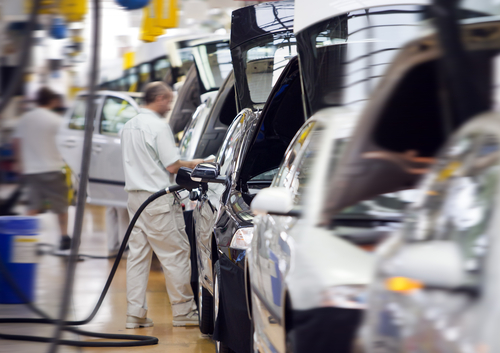
The industry currently employs an estimated 5 million workers and is now demanding a reliable timeline from the government for the next 10 to 15 years, clearly defining the relevant regulations and plans so that companies can prepare accordingly. ACMA President Jain said that the supplier industry’s ability to invest has been significantly reduced. He cited a slightly more distant decline in overall demand for auto parts and, currently, the global coronavirus outbreak as reasons. “In general, the industry needs more stability; in the past, there have been too many obstacles. We need to stabilize the industry and strengthen it through sustainable planning. We want to achieve this through better networking and collaboration among all the stakeholders involved,” Jain added.
Currently, there are still disruptions in the automotive supply chain in India, even though demand is at a low level. As a result, the ACMA association is calling for the government to address the problem as a whole and provide assistance and support to both producers and buyers, domestic and abroad. The association estimates that the automotive sector is playing an important role in the recovery of the Indian economy after the Corona crisis. In the last fiscal year, the auto supply industry posted sales of $49.2 billion, down 11.7 percent from the previous year. Recently, the Indian government also introduced mandatory certification for additional automotive components such as wheels and rims, auto glass and electronic components. The vast majority of standards for the Indian automotive industry are found in the AIS. AIS stands for Automotive Industry Standards, the technical automotive standards for India. MPR International GmbH – India Certification will be pleased to assist you with your AIS certification and is also available to answer any questions you may have.
AIS stands for Automotive Industry Standards, the technical automotive standards for India, while TAC stands for Type Approval Certificate. Depending on the product category, there are different certification steps. We will be happy to advise you on certification in India and are always available to answer your questions.
Please do not hesitate to contact us for further details and consultation. You can contact us via e-mail, or call us (UK: +44 2071931135, Rest of Europe: +49 69 2713769261, US: +1 773 654-2673).
If you have any questions you can also use our chat-window in the bottom right. (Please check your browser settings if you can’t see the window)
You can also check out our free AIS-Brochure, which can be downloaded right here as a PDF file.
Indian government wants to reduce road construction costs without compromising construction quality
India’s Minister of Road Transport and Highways, Gadkari, said at a virtual conference for the road construction industry that the government will introduce certain guidelines for reducing the cost of road construction while maintaining the quality of construction work. At the same time, the Minister called on the industry to increase the use of plastic and rubber processing waste to reduce the environmental impact of the disposal of waste. Residual materials from the metal industry such as slag and sprue residues should also be considered for use in road construction, the minister continued. He also suggested using local raw materials such as jute and coir in road construction to extend the life of the structures and improve the driving experience. For such projects, the government would develop and provide a system of formwork and prefabricated elements.
As part of the use of modern technology in road construction, the Minister called on the industry to use internationally recognized and proven construction methods. The industry must also develop a new scheme for a 10-year warranty period for the construction of asphalt roads. The current warranty period is five years. His ministry will support the construction industry with all possible means, said Gadkari. If the quality of execution of construction work improves, the ministry will approve projects to increase the share of asphalt roads in the country. In view of the COVID 19 pandemic, the minister was nevertheless able to report rapid and scheduled progress of road construction projects. Some construction sites are even ahead of schedule, Gadkari added. In India, building materials are subject to certification similar to the DIN/ISO/EN standards, for example cement and reinforcing steel or structural steel. The specifications are defined by the BIS standards. BIS stands for the Bureau of Indian Standards and is the national Indian certification body under the umbrella of the Indian Ministry of Consumer Protection, Food & Public Distribution. It is the central issuing body for BIS certification.
Since 2012, the BIS has been gradually expanding the certification catalog and continuously adding additional goods. BIS certification mandatory for many electronic products for industrial and consumer uses. Factory inspections are also required for some products.
If you are interested in understanding what requirements are needed for your product to be imported into India, please do not hesitate to contact us by email or phone at +49-69-271 37 69 261. There is no cost or obligation for us to check for you. If a certification need is discovered we can provide a quotation to make sure that all your certification needs are covered.
If you have any questions you can also use our chat-window in the bottom right. (Please check your browser settings if you can’t see the window)
For more information about BIS certification, please refer to our free brochure “BIS Certification Made Easy“.



